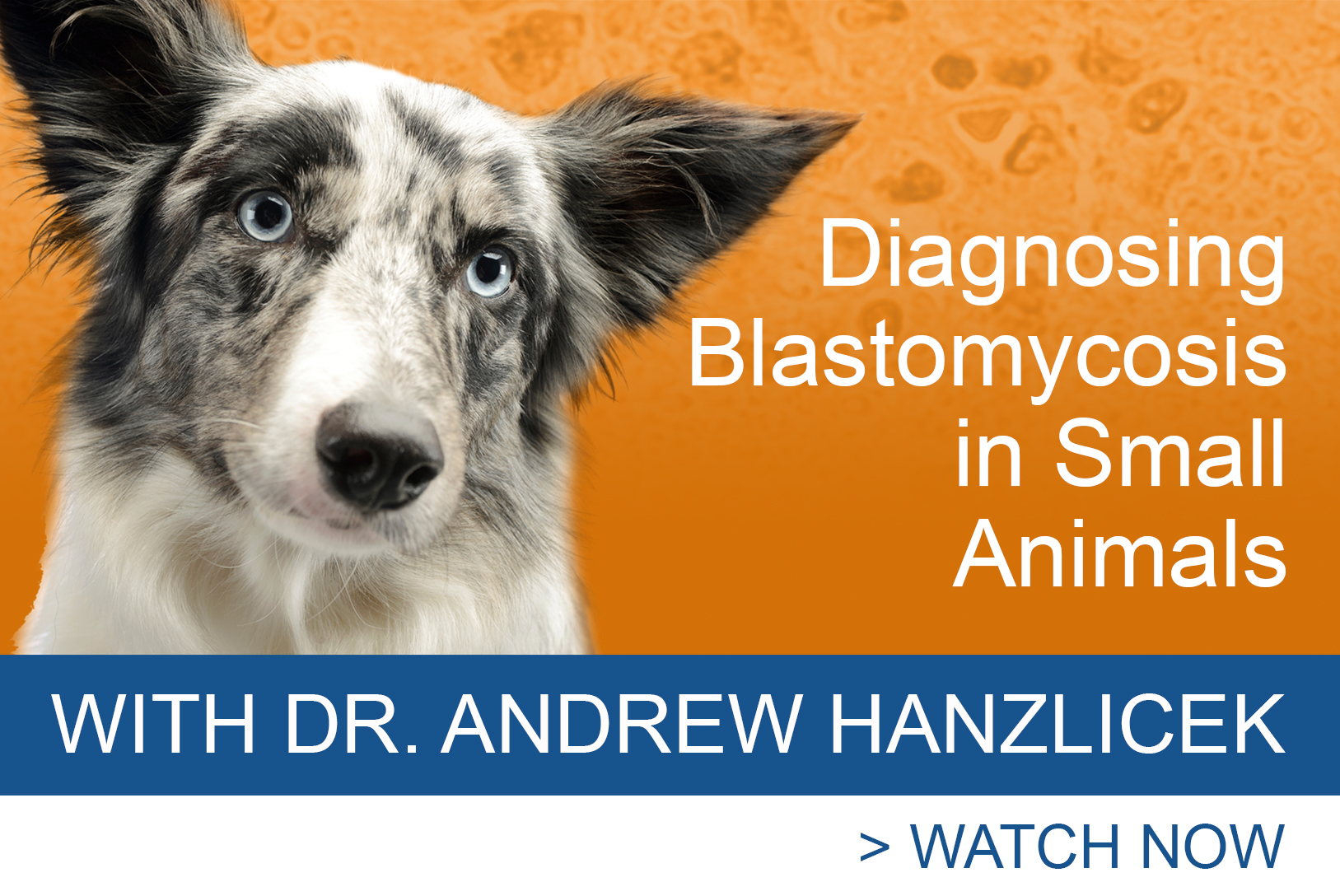Resources
Account Set Up
Sign up to be client
Test Menu
Download our Test Menu
Test Schedule
Download our Test Schedule
Order Forms
Fill out an Order Form
Shipping Info
Check out shipping requirements
Learning Resources
View our library of material
Holiday Schedule
See our Holiday Schedule
Get Started
Set Up an Account. Download a Test Menu. Start Ordering Tests.
Diagnosing Histoplasmosis In Small Animals with Dr. Andrew Hanzlicek | MiraVista Veterinary Diagnostics
Additional Lectures
Diagnosing Blastomycosis In Small Animals with Dr. Andrew Hanzlicek | MiraVista Veterinary Diagnostics
Diagnosing Blastomycosis In Small Animals with Dr. Andrew Hanzlicek
Diagnosing Coccidioidomycosis (Valley Fever) In Small Animals with Dr. Andrew Hanzlicek | MiraVista Veterinary Diagnostics
Diagnosing Coccidioidomycosis (Valley Fever) In Small Animals with Dr. Andrew Hanzlicek
Desciption
In this lecture, Dr. Hanzlicek walks through his presentation on diagnosing Histoplasmosis, also know as “Histo,” in small animals. Histoplasmosis is caused by the dimorphic fungus, Histoplasma. This fungus is commonly found in soil with high nitrogen content, often contaminated by the droppings of birds or bats.
Both pets and humans can develop Histoplasmosis upon inhaling the fungal spores aerosolized in contaminated dirt or dust. Cats and dogs are both at risk. Many animals exposed to Histoplasma never develop clinical signs. If pets are showing symptoms, they may be vague and can overlap with symptoms from bacterial infections, immune-mediated diseases, or cancers. Clinical signs include:
• Weight loss (cats & dogs)
• Lethargy (cats & dogs)
• Fever, unresponsive to antibiotics (cats & dogs)
• Abnormal breathing: Rapid (tachypnea) or Labored (dyspnea) (cats & dogs)
• Swollen lymph nodes (Lymphadenopathy) (cats & dogs)
• Cough (dogs)
• Diarrhea (dogs)
• Lameness or joint swelling (cats)
• Anorexia (cats & dogs)
• Blindness (cats & dogs)
Early diagnosis is incredibly important. It’s recommended to send urine for antigen testing with the MVista® Histoplasma Antigen Quantitative EIA (Test Code: 310). Other non-invasive tests may be required as well, including the MVista® Histoplasma Canine lgG Antibody EIA (Test Code: 327), the MVista® Histoplasma Feline lgG Antibody EIA (Test Code: 328), Histoplasma Antibody by lmmunodiffusion (Test Code: 321), (1-3) – β-D-Glucan Colorimetric Assay (Test Code: 317) or the MVista® ltraconazole by Bioassay (Test Code: 312).

